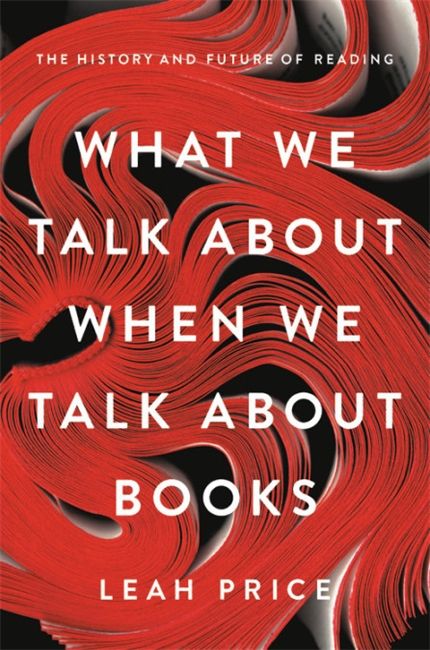Around 2000, people began to believe that books were on verge of extinction. Their obsolescence, in turn, was expected to doom the habits of mind that longform print had once prompted: the capacity to follow a demanding idea from start to finish, to look beyond the day’s news, or even just to be alone. The “death of the book” is an anxiety that has spawned a thousand jeremiads about the dumbing down of American culture, the ever-shorter attention spans of our children, the collapse of civilized discourse. All of these anxieties rely on the idea of a golden age, when children and adults alike sat quietly for long stretches reading edifying literature that improved our minds and souls. A booklover by temperament as much as profession, literature professor Leah Price wanted to believe that. But as a historian of the book, searching out the traces of long-dead readers through their marginalia and their unbroken spines, she began to wonder if our current digital discontents were stirring up nostalgia for a past that had never existed.When you look at old books, what do you find? A few well-greased pagespreads limply scattered among hundreds that remained spotlessly crisp; essays stained with beer from reading aloud at the pub; novels crumpled from being hidden in a pocket. From the eighteenth-century dawn of mass literacy to the Cold-War-era triumph of the paperback, few books were read cover-to-cover, meditatively, in silence. We have been shocked – shocked!–by data from Kindle that shows that most readers start books but rarely finish them, or skip large sections in between. But it has always been so. And in fact, for much of history, “deep” reading was strongly discouraged. Doctors and clergymen warned that print could addict, distract, or corrupt–not the ideas it contained, but the very experience of running one’s eyes over a page. Over the centuries, children and women especially were repeatedly warned not to spend too much time reading, lest it excite their minds and distract them from other, more edifying tasks. Impatient with untempered book worship, Price emphasizes the continuities between past and present reading practices, and dispels the myth of the Golden Age of Print on multiple fronts. An anti-nostalgic examination of the past, present and future of reading, What We Talk About When We Talk About Books will fascinate bibliophiles and readers of all stripes.]]>
Education, History, Information technology: general topics, Language teaching and learning, Literature: history and criticism
What We Talk About When We Talk About Books
Original price was: ₹1,425.00.₹1,069.00Current price is: ₹1,069.00.
The History and Future of Reading
This book is currently not in stock. You are pre-ordering this book.

